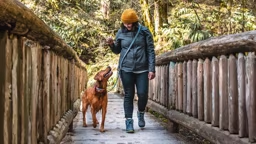
Going off the grid can be a peaceful way of living. Tiny houses are becoming more popular than ever, and people are flocking to more remote locations to reduce stress and enjoy the health benefits of being in nature. Obviously, we’re all about cabin living, especially when you’re able to find your own little slice of a remote paradise.
However, living in a rural area doesn’t come without challenges. You might not be able to have a strong Internet connection. Cell service is often spotty. More importantly, it can be a chore to live far away from stores, restaurants and other common amenities. You also might be far from hospitals and urgent care centers. Unfortunately, accidents and illnesses can happen. You might be at an even greater risk of getting injured if you’re living off the land and taking care of things like chopping wood or dealing with nearby wildlife.
Not only can it be difficult to make it to a hospital quickly, but it might even be hard for emergency personnel to reach you in times of need. So, what can you do to handle medical problems and emergencies at your remote cabin?
Prepare Your Cabin
One of the best ways to handle emergency medical issues at your cabin is to have the right supplies on hand. Having a first aid kit somewhere in your home should be obvious but consider going beyond the basics. You never know what you might encounter in a remote location, or how long it might be before you can get professional medical help. In addition to medications, bandages, and other first aid items, it’s important to stock up on emergency cabin essentials like:
- Candles
- Wireless charging batteries and flashlights
- Jugs of potable water
- Canned goods
- Extra blankets
If you’re sick or injured, it’s important to stay comfortable and make sure you’re drinking and eating enough so your body can fight back. Having the right supplies on hand will always make that easier. You don’t necessarily have to have a giant stockpile of supplies but try to have enough to last you and your family several weeks, if necessary.
It’s also a good idea to prepare and pack any essentials you might need if you go on outdoor adventures. Remote cabins are often in wooded areas. If you’re near good hiking trails or a fishing pond and you like to participate in those activities, make sure you bring along first aid supplies.
Prepare Yourself
Having the right supplies on hand is only half the battle when it comes to handling medical problems and emergencies. You also must be knowledgeable and prepared so you can stay calm and take action if something happens. The best way to do that is by educating yourself on some basic first aid techniques, including:
- CPR
- Wound cleaning
- Administering medication
- Treating a severe injury
It’s never a bad idea to take classes that can help you learn these procedures. You might even want to consider a wilderness medicine course that can further prepare you for whatever your rural surroundings might have to offer.
Common sense and medical knowledge can make a big difference when it comes to handling emergencies appropriately. Get the training you need, and don’t hesitate to pass as much knowledge as possible onto your family.
Even if you’re using a remote cabin as a vacation home, it’s important to brush up on these skills. Recreating outdoors comes with the risk of developing foodborne or waterborne illnesses and can expose you to other elements that might cause injury or sickness. If you’re staying at a cabin on vacation and get sick, utilize your first aid kit, start medicating if possible, and get to an ER or urgent care center quickly. Don’t wait for your injury or illness to get worse, especially if the cabin is far away from medical help. It’s better to be proactive and seek out help sooner.
Know When to Go
In some cases, you might need to evacuate your cabin to keep yourself and your family safe. Most cabins rely on fireplaces or wood-burning stoves for heat. While these are efficient and effective ways to warm up a house, they can also be risky and potentially cause fire damage. Weather can also be a factor when it comes to your health and safety. No one wants to think about the risk of flooding, damaging thunderstorms, or even wildfires in heavily wooded areas, but they do happen.
First and foremost, prepare yourself and your cabin to fight back against these elements and to stay safe throughout each season. In some cases, however, you might need to evacuate your space for the safety of everyone.
Not sure when to evacuate? If there is a potential threat to your life and/or your property, don’t risk sheltering in place. When you live in a remote area, it’s likely to take you more time to get somewhere safe and populated with medical professionals. Don’t wait until the last minute to remove yourself and your family from a dangerous situation.
There are countless benefits to living in a remote cabin, but it’s not all rest and relaxation. Make sure you know how to keep yourself safe and healthy by prioritizing your well-being and preparing yourself for medical emergencies as much as possible.
Sam Bowman writes about people, tech, wellness, and how they merge. He enjoys getting to utilize the internet for the community without actually having to leave his house. In his spare time, he likes running, reading, and combining the two in a run to his local bookstore.










